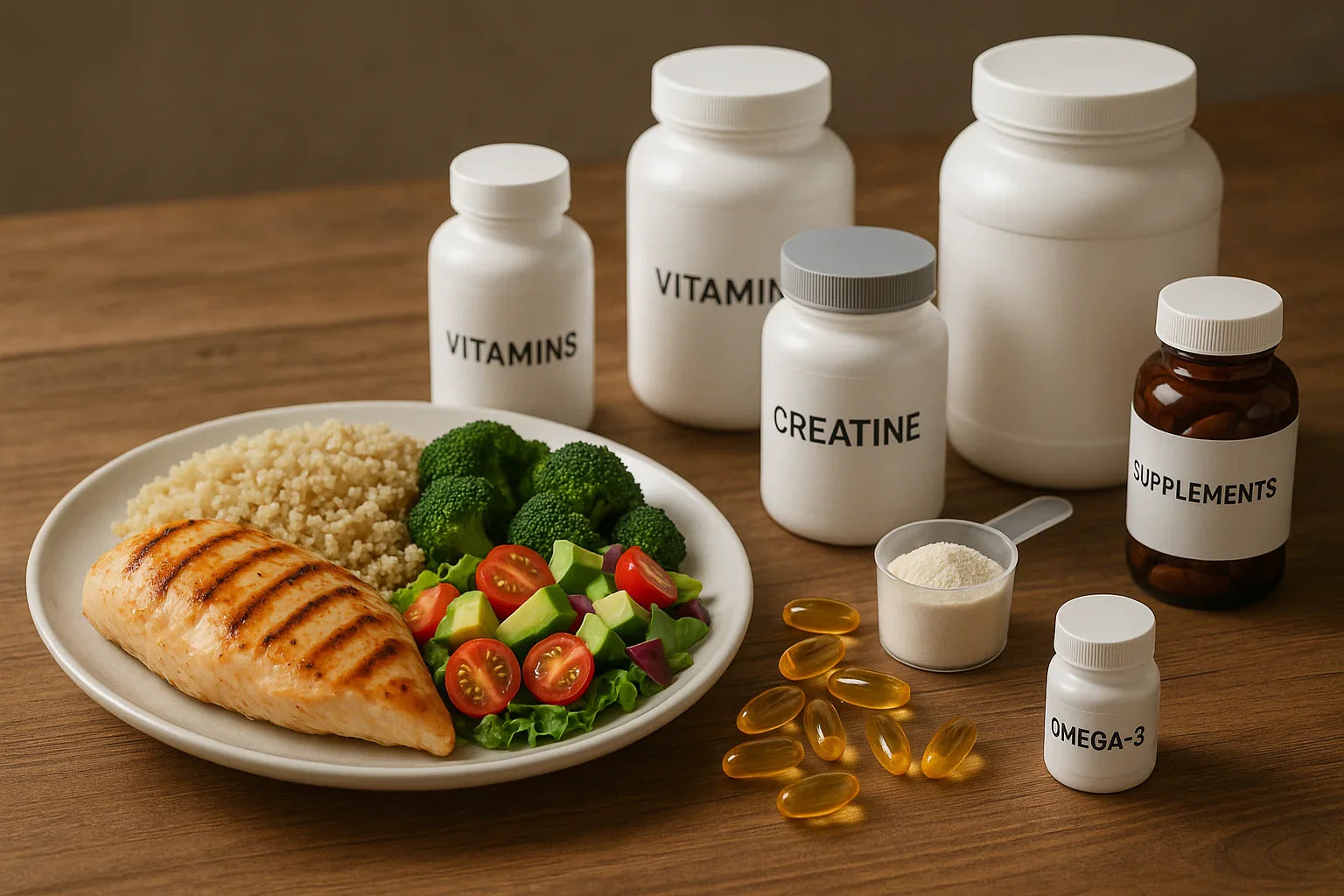
Beyond the Bottle: What You REALLY Need to Know About Supplements
The world of health and wellness is a vibrant, often confusing, landscape. We are constantly bombarded with information about the latest superfoods, workout trends, and, most prominently, dietary supplements. From vitamin gummies to protein powders, the market is overflowing with products promising a healthier, more energetic you. But what's the real story? Is a supplement routine the secret to optimal health, or is it just clever marketing?
This blog post is your comprehensive guide to looking beyond the bottle. We'll delve into the science behind supplements, help you identify what your body might actually need, and equip you with the knowledge to make smart, informed choices. Forget the hype—let's focus on real, sustainable wellness.
First, Food is Your Foundation: The Core of a Healthy Lifestyle
Before we talk about supplements, it's critical to establish one golden rule: supplements are meant to supplement, not replace, a healthy diet. The vitamins, minerals, and phytonutrients found in whole foods are absorbed and utilized by your body in a complex, synergistic way that a pill can't fully replicate. The fiber, antioxidants, and other compounds in fruits, vegetables, and whole grains work together to support everything from gut health to immune function.
So, before you consider any health supplements, ask yourself: am I consistently eating a balanced diet with a variety of foods? If the answer is no, start there. A multivitamin can't undo the effects of a diet high in processed foods and sugar. To learn more about creating a solid nutritional base, check out our guide on Healthy Eating for Beginners.
Identifying Potential Deficiencies: When Supplements Become a Tool
Even with the best intentions, our modern diets and lifestyles can leave us with nutritional gaps. This is where supplements become a valuable tool. Certain demographics and health conditions are more prone to specific vitamin and mineral deficiencies.
Here are some of the most common deficiencies and their tell-tale signs:
-
Vitamin D Deficiency: Often called the "sunshine vitamin," Vitamin D is crucial for bone health and immune function. If you live in a region with limited sunlight, have darker skin, or spend most of your time indoors, you might be at risk. Symptoms can include bone pain, muscle weakness, and general fatigue. Vitamin D supplements are one of the most frequently recommended.
-
Iron Deficiency: This is particularly common in women of childbearing age, vegetarians, and vegans. Iron is vital for transporting oxygen throughout the body. A lack of it can lead to anemia, causing symptoms like extreme fatigue, paleness, and brittle nails.
-
Vitamin B12 Deficiency: Primarily found in animal products, Vitamin B12 is essential for nerve function and red blood cell formation. People on vegetarian or vegan diets are at a higher risk of deficiency. Symptoms can include tingling in the hands and feet, memory issues, and chronic fatigue.
-
Magnesium Deficiency: Many people don't get enough magnesium from their diet. This mineral is involved in hundreds of bodily processes, from muscle contraction to nerve transmission. Low magnesium levels can manifest as muscle cramps, restless legs, and poor sleep quality. A high-quality magnesium supplement can be highly beneficial.
Recognizing these symptoms is the first step toward a targeted and effective supplement routine. For a deeper dive into the importance of vitamins, read our article: The A-Z of Essential Vitamins.
The Art of Choosing High-Quality Supplements: What to Look For
With so many brands on the market, how do you sort the good from the not-so-good? This is arguably the most important part of your supplement journey. The supplement industry is not as tightly regulated as the pharmaceutical industry, making due diligence essential.
Here's what to look for when choosing high-quality supplements:
-
Third-Party Testing: This is the gold standard for quality. Look for certifications from independent organizations like NSF International, USP (U.S. Pharmacopeia), or ConsumerLab.com. These seals mean the product has been tested to ensure it contains what it claims on the label, is free from harmful contaminants, and has been manufactured properly.
-
Reputable Brands: Do your research. A brand with a long-standing reputation for quality and transparency is generally a safer bet. Look at their manufacturing practices (e.g., GMP-certified facilities) and read customer reviews.
-
Bioavailability: This refers to how well your body can absorb and use a nutrient. For example, some forms of magnesium (like magnesium citrate or glycinate) are better absorbed than others (like magnesium oxide). Look for supplements that use forms with high bioavailability for maximum effectiveness.
-
Read the Label: Go beyond the front of the bottle. Check the "Supplement Facts" panel for the dosage, active ingredients, and any "other ingredients" like fillers or artificial colorings. Beware of "proprietary blends" that don't list the exact amount of each ingredient, as they may contain very small, ineffective doses.
You can find a curated selection of our own third-party tested supplements here, all of which meet these strict quality standards.
Creating Your Smart Supplement Routine: Personalized and Purposeful
A smart supplement routine isn't about taking a dozen different pills. It's about being strategic and personalized.
-
Consult a Professional: Always, always, always talk to your doctor or a registered dietitian before starting any new supplement. They can help you determine if you have a deficiency, check for potential interactions with medications you're already taking, and recommend the right dosage. For more information, you can read this resource from the National Institutes of Health on Dietary Supplements.
-
Start with the Basics: A high-quality multivitamin can be a great starting point to cover your bases. From there, you can add targeted supplements based on your specific needs, such as Vitamin D during winter months or a probiotic for gut health. We have an extensive guide on How to Choose a Multivitamin that can help.
-
Timing is Everything: Some supplements are best taken with food to aid absorption (like fat-soluble vitamins A, D, E, and K), while others are better on an empty stomach. Follow the instructions on the label and your healthcare provider's advice.
-
Consistency is Key: A supplement only works if you take it regularly. Integrate it into your daily routine—whether it's with your morning coffee or before you go to bed—to build a lasting habit.


